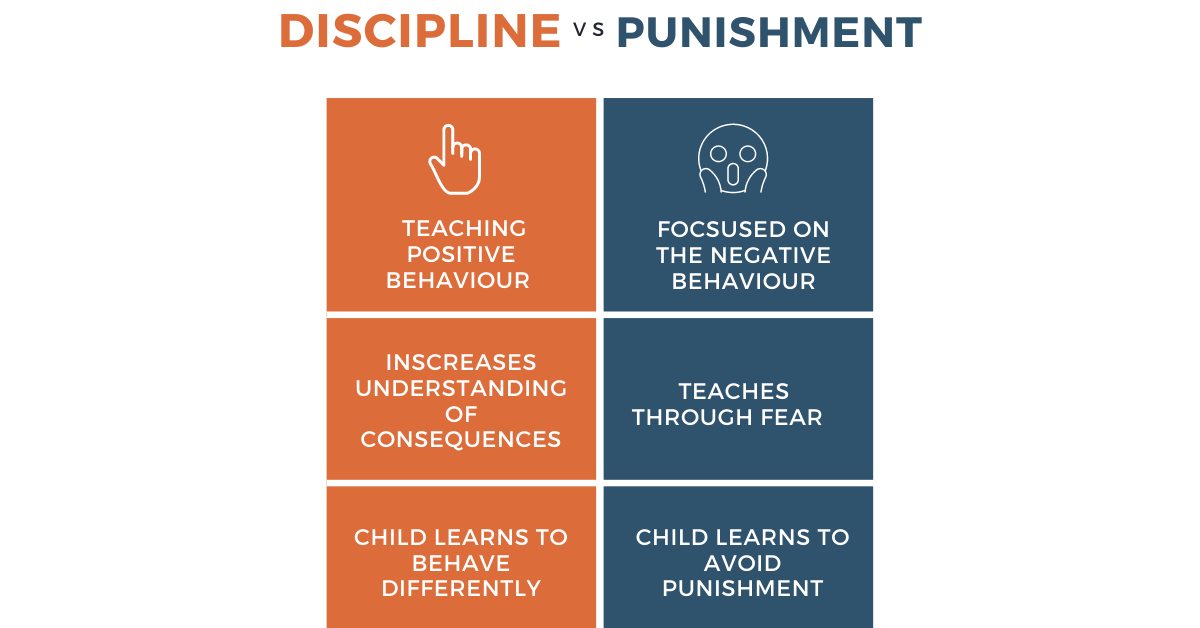Tried it all but still struggling to discipline your child?
First ask yourself…
Why punishment backfires so often?
Punitive parenting can decrease self-esteem, sense of safety in the world, belief in one’s own strengths and resources. Punished children often feel they don’t deserve to be loved unconditionally.
Punishment makes them more likely to ‘act out’ because they don’t feel emotionally safe.
A person who was brought up being punished a lot may struggle to develop their own moral compass because they weren’t taught to empathize with others and have self-compassion. Some may resort to undesirable behavior when they know they can avoid consequences.

What to do instead?
Pause and reflect.
Ask yourself: what outcome do I want? What will get me to that outcome?
(for example: I want him to understand that it’s important that he puts dishes in the dishwasher)
Kids can make us feel like everything is a matter of life and death, but in most cases it’s really not.
It’s actually okay to say “I need a moment. We will continue the conversation in 5 minutes. I will make some tea and come find you.”
If you communicate in anger, you are more likely to want to ‘punish’ instead of teaching a valuable lesson.
Communicate the expectation at a time of calm.
Explain why it’s important that they do what you’re asking them to do. You can negotiate and get your child’s input, or just state the expectation and say it’s non-negotiable (only if it’s really a non-negotiable).

Clearly outline consequences
Be specific and clear. Make sure the consequences match the gravity of the misbehaviour. Avoid consequences that are too severe, or you will end up in a power struggle.
If they break the rule or request, find out why it happened.
Listen to them before making assumptions about why they didn’t do what you asked them to do.
Enforce the consequence
When communicating the consequence, try to emphasize that behavior doesn’t define them. Explain that their behaviour led to this consequence, but don’t withdraw your love and respect for them in this moment. Say “I am disappointed that you left the dishes in the sink because I outlined why it’s important that you put them in the dishwasher. Now … (state the consequence).”
Offer your support but be firm on that the consequence still stands. Offer them help to do better in the future.
They won’t like the consequences, and they don’t have to. Us adults don’t like getting parking tickets either, but we accept them as part of being an adult. Consequences for misbehaving are part of living in a community, but don’t have to and shouldn’t make the person feel shame or unworthiness.






